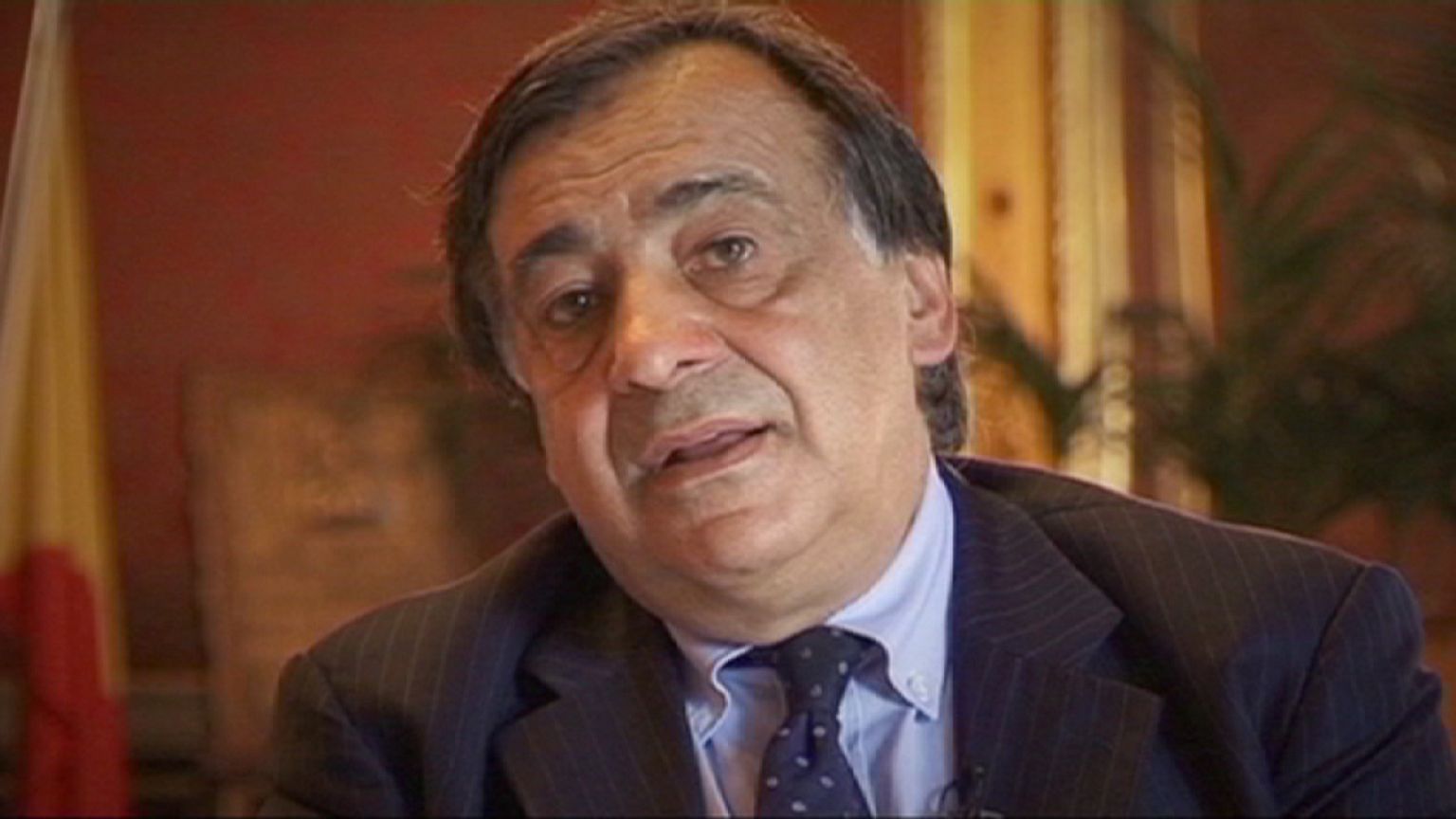Leoluca Orlando is back as Mayor in the Sicilian city of Palermo. As a former MP for the centrist ‘Italy of Values’ party, he won the mayoral elections on May 21st with 72% of the vote. This is his third stint as mayor, he also served during the 80s and the 90s, when the city was fighting for control against the Mafia. This time round he wants everyone to take accountability to beat organised crime, once and for all.
 ADVERTISEMENT
ADVERTISEMENT
 ADVERTISEMENT
ADVERTISEMENT
Cecilia Cacciotto, euronews:
Why do you think you’ve been so successful?
Leoluca Orlando, Mayor of Palermo: I think that my candidature was seen as anti-elitist. Right now it’s more important to give a voice to people’s needs and to give answers about Palermo’s troubled reality, than to lay down in a quiet place of privilege.
euronews: In the last local elections, the big parties broke down: what does this mean for Italy?
Leoluca Orlando, Mayor of Palermo: It was a break down for all the parties not just for the big ones: IDV- Italia dei Valori- my party that strongly supported me, got only the 11% of the votes in Palermo. The Democratic Party and Berlusconi’s People of Freedom party got between 8% and 9%. There’s a big crisis among the political parties because they don’t understand the people’s needs.
euronews: Palermo, town of hope and town of the mafia. 20 years ago, when the anti-mafia magistrate Giovanni Falcone was killed, negotiations between the state and the Mafia started. Do you think they are still going on now?”.
Leoluca Orlando, Mayor of Palermo: Hopefully there are negotiations. Before Palermo’s springtime, right after Falcone’s death, there weren’t any negotiations, we had no distinction between the state and the Mafia. In this chair, mayors like Vito Ciancimino used to sit. He didn’t negotiate with the Mafia, because he was the mafia. Then, right through society, from this Town Hall, to the courts and the church, Palermo started to resist and react. Cosa Nostra (the Mafia) was forced to open a dialogue. That’s why I say negotiations between state and Mafia are the confirmation that the state is fighting the Mafia.
euronews: Once upon a time, the role of the Mafioso was legitimate in Sicilian society, it’s not like that anymore but the Mafia and a mafia culture still exist. What do we need to do today to beat the Mafia?
Leoluca Orlando, Mayor of Palermo: Today, it’s maybe less dangerous to fight the Mafia, because there’s less killing. But it’s still really really difficult. Today Cosa Nostra aren’t looking for the material control of a territory, they want the financial and media media power. If banks, if financial businessmen, if the State doesn’t understand that money is tainted from all branches of society, the idea will spread that there is nothing wrong with this. Even the big bank, which gives me money to buy my house or to set up my business, doesn’t care about it. It doesn’t pay any attention to the money’s provenance (origin). And if it doesn’t, why should I?
euronews: Why is it, in Italy that even when a politician is under investigation and is suspected of dealing with the Mafia, he doesn’t step down? In the rest of Europe the suspicion alone of copying a doctorate is enough for resignation.
Leoluca Orlando, Mayor of Palermo: This is why Italy is not in line with the rest of Europe. I think Italy is not totally civilised, because if a politician sees a Mafioso and there is an investigation about it, what’s his first reaction? He gives interviews saying “Yes, it’s true, I see Mafioso, but it’s not a crime, I trust in justice”. What does that mean: I trust in justice? In a situation like this, the politician should quit their post! Our constitution imposes the full respect of the law, no crimes at all, and it imposes discipline and honour. What’s missing in Italy is an ethical code for our political parties. I’m ashamed! I am deeply ashamed. As MP, I presented a draft law in order to exclude people condemned for crimes from Parliament. It’s amazing we even need a law for this, isn’t it a moral decision to be taken by yourself?
euronews: In 1996 you were under investigation because according to an ex Mafioso, turned police informer you received money from the Mafia.
Leoluca Orlando, Mayor of Palermo: (interrupts) I’ve never been under investigation.
euronews: Nothing came of it but I would like to know: in your political career, have you ever had any contact with people from Cosa Nostra?
Leoluca Orlando, Mayor of Palermo: First of all, I’ve never had any contact with Mafiosi. Secondly, ever since the beginning of my political career, I’ve said I don’t want anything to do with the Mafia full stop, that’s why the Mafia doesn’t even try to get close to me. In the 1985, the first time I was elected mayor of Palermo, I built a tribunal to house the biggest ever case against the Mafia and I brought a civil suit in a criminal case. My whole history has made the Mafia stay well away from me. It doesn’t mean, though, that the Mafia haven’t tried to get a foothold in the town hall nonetheless”.
euronews: Did they get in?
Leoluca Orlando, Mayor of Palermo: Yes, lots of times, but my reaction has been quite simple; I cut links by ending all the contracts I suspected involved the Mafia”.
euronews: Palermo town of hope, town of the mafia – what are your hopes for its future?
Leoluca Orlando, Mayor of Palermo: I would like to give Palermo back to its citizens. I’m going to help Palermo by using my economical, financial and cultural contacts. I’m going to help Palermo with my national and international contacts because I hope Palermo will become visible once again. Over the last few years, Palermo was an invisible town, even for the Mafia it was invisible. But the criminal activity still went on. I very much want Palermo back on the front stage for its great initiatives and not for Mafia crimes”.














